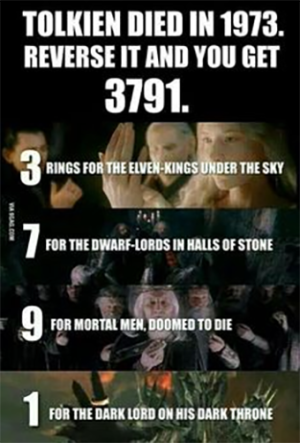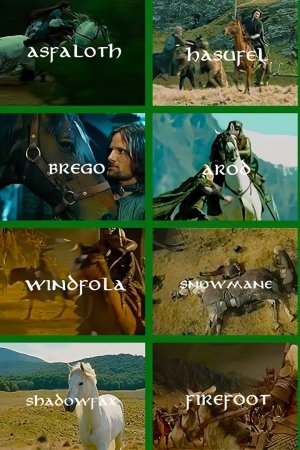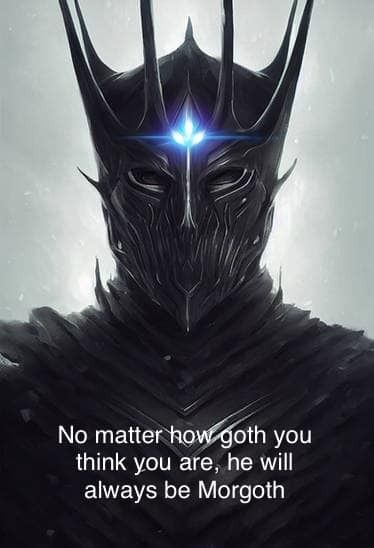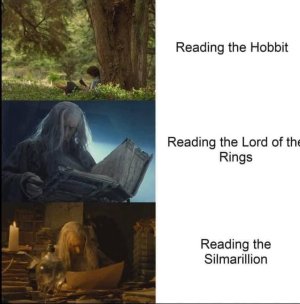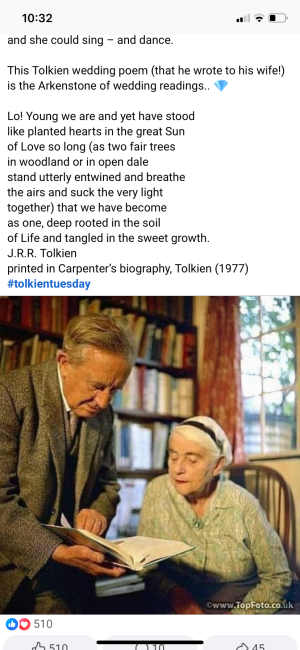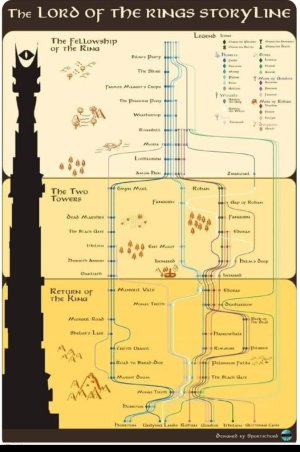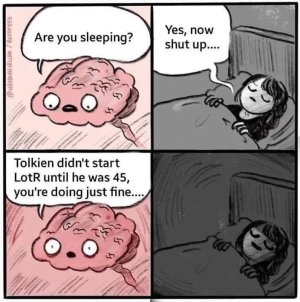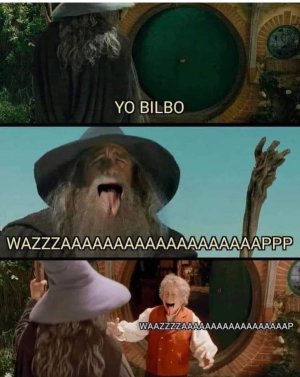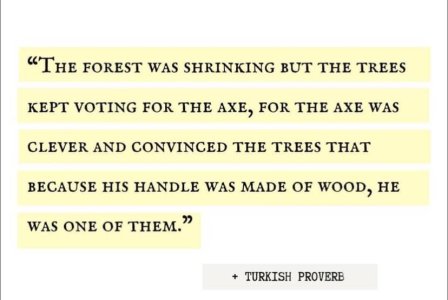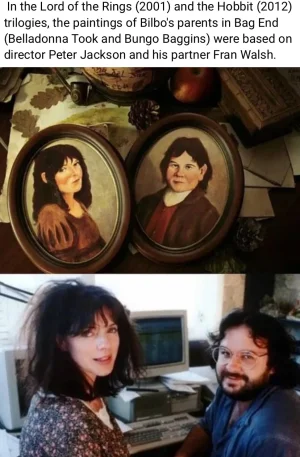You are using an out of date browser. It may not display this or other websites correctly.
You should upgrade or use an alternative browser.
You should upgrade or use an alternative browser.
Tolkien
- Thread starter Asa
- Start date
More options
Who Replied?- MBTI
- ENFP
- Enneagram
- 947 sx/sp
“Men are not monogamous. No good pretending. Men just ain’t, not by their animal nature. Monogamy (although it has long been fundamental to our inherited ideas) is for us men a piece of ‘revealed ethic,’ according to faith and not the flesh. The essence of a fallen world is that the best cannot be attained by free enjoyment, or by what is called “self-realization” (usually a nice name for self-indulgence, wholly inimical to the realization of other selves); but by denial, by suffering. Faithfulness in Christian marriages entails that: great mortification.
For a Christian man there is no escape. Marriage may help to sanctify and direct to its proper object his sexual desires; its grace may help him in the struggle; but the struggle remains. It will not satisfy him—as hunger may be kept off by regular meals. It will offer as many difficulties to the purity proper to that state as it provides easements.
No man, however truly he loved his betrothed and bride as a young man, has lived faithful to her as a wife in mind and body without deliberate conscious exercise of the will, without self-denial. Too few are told that—even those brought up in ‘the Church’. Those outside seem seldom to have heard it.
When the glamour wears off, or merely works a bit thin, they think that they have made a mistake, and that the real soul-mate is still to find. The real soul-mate too often proves to be the next sexually attractive person that comes along. Someone whom they might indeed very profitably have married, if only—. Hence divorce, to provide the ‘if only’.
And of course they are as a rule quite right: they did make a mistake. Only a very wise man at the end of his life could make a sound judgement concerning whom, amongst the total possible chances, he ought most profitably have married! Nearly all marriages, even happy ones, are mistakes: in the sense that almost certainly (in a more perfect world, or even with a little more care in this very imperfect one) both partners might have found more suitable mates. But the ‘real soul-mate’ is the one you are actually married to. In this fallen world, we have as our only guides, prudence, wisdom (rare in youth, too late in age), a clean heart, and fidelity of will…”
– John Ronald Reuel Tolkien CBE FRSL
For a Christian man there is no escape. Marriage may help to sanctify and direct to its proper object his sexual desires; its grace may help him in the struggle; but the struggle remains. It will not satisfy him—as hunger may be kept off by regular meals. It will offer as many difficulties to the purity proper to that state as it provides easements.
No man, however truly he loved his betrothed and bride as a young man, has lived faithful to her as a wife in mind and body without deliberate conscious exercise of the will, without self-denial. Too few are told that—even those brought up in ‘the Church’. Those outside seem seldom to have heard it.
When the glamour wears off, or merely works a bit thin, they think that they have made a mistake, and that the real soul-mate is still to find. The real soul-mate too often proves to be the next sexually attractive person that comes along. Someone whom they might indeed very profitably have married, if only—. Hence divorce, to provide the ‘if only’.
And of course they are as a rule quite right: they did make a mistake. Only a very wise man at the end of his life could make a sound judgement concerning whom, amongst the total possible chances, he ought most profitably have married! Nearly all marriages, even happy ones, are mistakes: in the sense that almost certainly (in a more perfect world, or even with a little more care in this very imperfect one) both partners might have found more suitable mates. But the ‘real soul-mate’ is the one you are actually married to. In this fallen world, we have as our only guides, prudence, wisdom (rare in youth, too late in age), a clean heart, and fidelity of will…”
– John Ronald Reuel Tolkien CBE FRSL
HeavyNeuralPayload
Community Member
- MBTI
- INFJ
- Enneagram
- 594 sp>sx
Darc
Well-known member
- MBTI
- Fi
- Enneagram
- 4W3
I love the books, I used to like the movies a lot but they are not as entertaining to me as they were in the past. That's interesting that Tolkein felt he was writing mythology for Britain. I see that to an extent, which is partially how the movies come across to me, somewhat like scottish mythology. It kind of comes across like "we wuz kangz" when I watch them now, though I don't feel that way reading the books.
I really like the first movie, fellowship of the ring, wherein afterwards I felt the movies became more drab. The first movie feels a lot more mythical and otherworldly and close to how I think a fantasy film should be filmed. I still like watching the first one. Peter Jackson probably took a really literal approach to directing but with how mainstream the films were I am sure they weren't able to do a lot of things with them. I noticed this a lot with films that have sequels, the first one in a series is usually more experimental by Hollywood standards, I don't know why.
I really like the first movie, fellowship of the ring, wherein afterwards I felt the movies became more drab. The first movie feels a lot more mythical and otherworldly and close to how I think a fantasy film should be filmed. I still like watching the first one. Peter Jackson probably took a really literal approach to directing but with how mainstream the films were I am sure they weren't able to do a lot of things with them. I noticed this a lot with films that have sequels, the first one in a series is usually more experimental by Hollywood standards, I don't know why.
Last edited:

